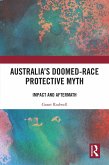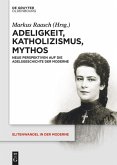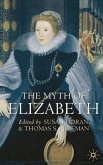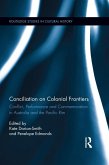Winner of the 2008 Holyer An Gof Award for non-fiction. An investigation of the popular tradition of 'Australia's Little Cornwall': how one town in South Australia gained and perpetuated this identity into the twenty-first century. This book is about Moonta and its special place in the Cornish transnational identity. Today Moonta is a small town on South Australia's northern Yorke Peninsula; along with the neighbouring townships of of Wallaroo and Kadina, it is an agricultural and heritage tourism centre. In the second half of the nineteenth century, however, Moonta was the focus of a major copper mining industry.
This book is about Moonta and its special place in the Cornish transnational identity. Today Moonta is a small town on South Australia's northern Yorke Peninsula; along with the neighbouring townships of of Wallaroo and Kadina, it is an agricultural and heritage tourism centre. In the second half of the nineteenth century, however, Moonta was the focus of a major copper mining industry.
From the beginning, Moonta cast itself as unique among Cornish immigrant communities, becoming 'the hub of the universe' according to its inhabitants, forging the myth of 'Australia's Little Cornwall': a myth perpetuated by Oswald Pryor and others that survived the collapse of the copper mines in 1923-and remains vibrant and intact today.
This book is about Moonta and its special place in the Cornish transnational identity. Today Moonta is a small town on South Australia's northern Yorke Peninsula; along with the neighbouring townships of of Wallaroo and Kadina, it is an agricultural and heritage tourism centre. In the second half of the nineteenth century, however, Moonta was the focus of a major copper mining industry.
From the beginning, Moonta cast itself as unique among Cornish immigrant communities, becoming 'the hub of the universe' according to its inhabitants, forging the myth of 'Australia's Little Cornwall': a myth perpetuated by Oswald Pryor and others that survived the collapse of the copper mines in 1923-and remains vibrant and intact today.
Dieser Download kann aus rechtlichen Gründen nur mit Rechnungsadresse in A, D ausgeliefert werden.









